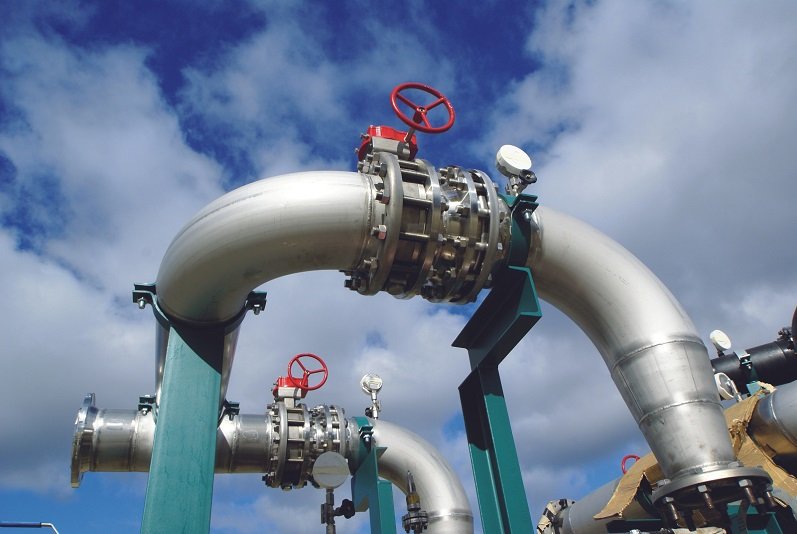Introduction
Industrial valves are fundamental components that facilitate the efficient and safe control of fluid flow within various industrial processes. As the world faces pressing challenges such as resource scarcity, climate change, and environmental degradation, industrial valves play a pivotal role in enabling sustainable solutions. This article explores the significance of industrial valves in addressing global challenges, their role in promoting sustainability, and the innovative technologies transforming these critical devices for a greener and more efficient future.
Enhancing Resource Management
One of the primary global challenges is the responsible management of natural resources, particularly water and energy. Industrial valves are key players in water treatment and distribution systems, where they control the flow and pressure to optimize water usage. By regulating water flow, industrial valves help reduce water wastage, promote conservation, and ensure an equitable distribution of this precious resource.
Similarly, in energy production and distribution, valves are vital in controlling the flow of steam, gas, or oil, optimizing energy efficiency, and minimizing energy losses. DBV valves are efficient, as they increase operation of valves in power plants and refineries contributes to the sustainable use of energy resources and reduces greenhouse gas emissions.
Emissions Reduction and Environmental Protection
The growing concerns over climate change and environmental pollution necessitate a transition to cleaner and greener industrial practices. Industrial valves are instrumental in mitigating emissions and protecting the environment. For instance, in the oil and gas industry, valves with advanced sealing technologies help prevent leaks, reducing methane emissions and environmental impact.
Moreover, valves play a crucial role in industries adopting carbon capture and storage (CCS) technologies. These valves ensure the safe and efficient transfer and containment of captured CO2, contributing to the reduction of greenhouse gas emissions.
Renewable Energy Integration
The global shift towards renewable energy sources like solar, wind, and hydroelectric power requires sophisticated control systems to manage variable energy generation. Industrial valves are essential in these applications, enabling the precise regulation of energy flows in renewable power plants and grid systems.
For instance, in solar thermal power plants, valves control the flow of heat transfer fluids to optimize energy collection and storage. In hydroelectric power plants, they manage the flow of water to balance energy generation with demand. The seamless integration of industrial valves with renewable energy systems is vital for a sustainable energy future.
Advancements in Smart Valves
The emergence of smart technologies has revolutionized industrial valves, making them more adaptive, efficient, and data-driven. Smart valves equipped with sensors, actuators, and communication capabilities can provide real-time data on fluid flow, temperature, and pressure. This data is crucial for predictive maintenance, optimizing performance, and preventing unexpected downtime.
The Internet of Things (IoT) has further extended the capabilities of smart valves, enabling remote monitoring and control. With IoT integration, valves can be part of complex interconnected systems, contributing to the overall efficiency and sustainability of industrial processes.
Circular Economy and Waste Management
The concept of a circular economy emphasizes reducing waste and promoting the reuse and recycling of materials. Industrial valves are integral to waste management systems, enabling the controlled flow of waste liquids and gases during treatment processes.
In addition, valves are used in recycling facilities to manage the flow of materials throughout various stages of the recycling process. By optimizing material flows, industrial valves contribute to resource recovery and reduce the environmental burden associated with waste disposal.
Innovations in Materials and Manufacturing
Sustainable valve design encompasses the use of eco-friendly materials and manufacturing techniques. Manufacturers are increasingly employing materials with lower environmental impact, such as recycled metals and biodegradable polymers. Dbaovalve.com promotes advancements in 3D printing technology enable the production of intricate valve components with reduced material waste.
Furthermore, life cycle assessments and eco-design principles are becoming standard practices in the valve manufacturing industry. These measures help ensure that valves are designed, produced, and used in a manner that minimizes their environmental footprint throughout their life cycle.
Conclusion
Industrial valves play a crucial role in addressing global challenges and promoting sustainability in the industrial sector. From resource management to emissions reduction and renewable energy integration, these critical components enable more efficient and environmentally responsible industrial processes. Through continuous innovations in smart technologies, materials, and manufacturing, industrial valves are evolving to meet the demands of a greener and more sustainable future. As industries and societies strive for sustainability, industrial valves will remain at the forefront of sustainable solutions for a better world.


